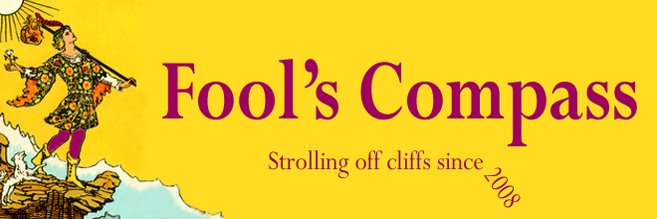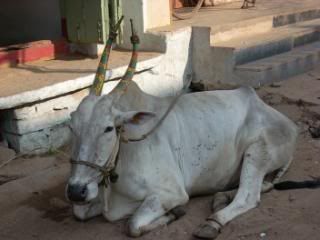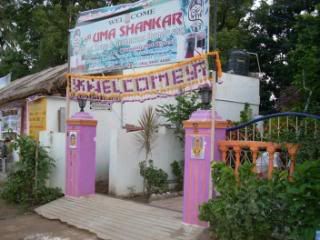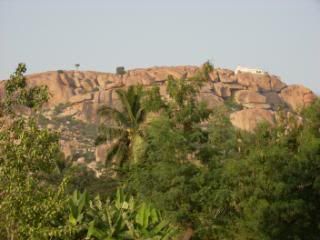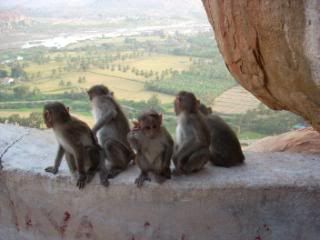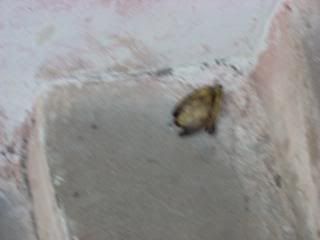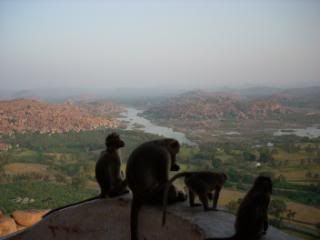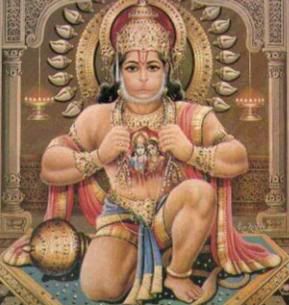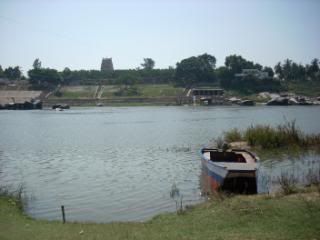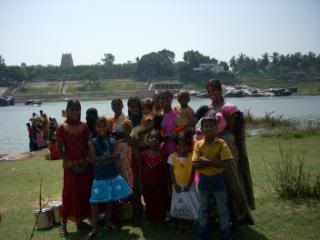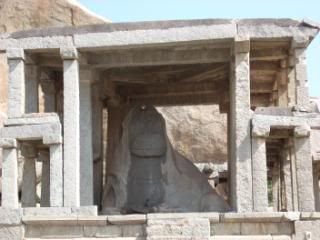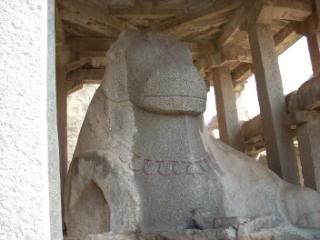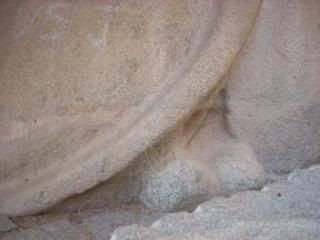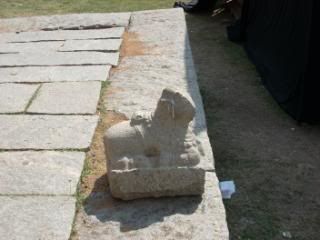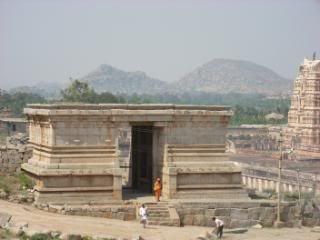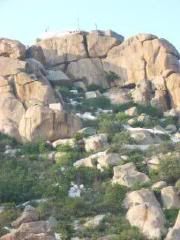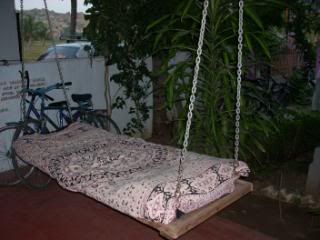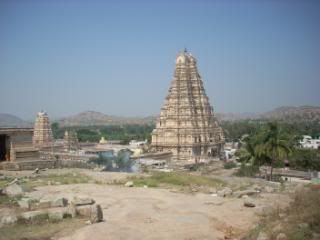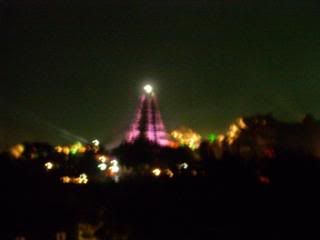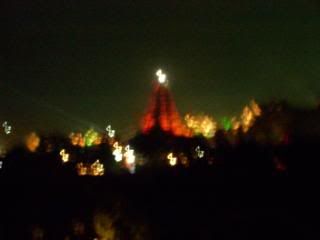I woke up here on Thanksgiving Day on my beautiful Arambol beach (hundreds of kilometers from Mumbai, thank God) to hear some Belgian tourists complaining that all flights to Mumbai had been canceled. I grabbed a newspaper over my veg hakka noodle brunch at the Rice Bowl and I could not believe what I was reading. 30 shot dead in the train station where India and Becca had their staring contest, tourists held hostage at the Taj Hotel where I ogled fancy dresses in glamorous shop windows, a grenade attack at the movie theater where I saw "Hellboy 2", a boatload of explosives at the Gateway to India where I first spied the moon from this country. All told, there have been five bomb blasts so far. There are already 60 dead and 200 injured in the tourist district where I was just trying to book a hotel for my mom's visit to Mumbai in January!
The terrorists are still free in the hotels and the train station. No one is yet sure why this is happening. The army has descended on the city and police are being sent from all areas.
I feel physically safe on the remote beach where I'm staying, but I can't help but wonder what planet I'm on over here. I knew there were bomb blasts and terrorist activity in India, but I had comforted myself in thinking they were all confined to areas of unrest in specific northern states I never planned to visit. Now, the worst one to date, with bombs and guns and grenades and no end in sight yet, has happened in the glorious, modern, enlightened south.
Mumbai is not a political city. It's the city of Bollywood movies and nightlife and romance, a city where West and East mingle on dance floors and in clean, upscale boutiques. Like our own Los Angeles, it is dirty and crowded, but it is the land where dreams are made. This is a strike on India's heart and its imagination and its port of entry for the Western world.
I am so sad for the people of the city, and also for India, whose tourist economy was already declining in the wake of global financial meltdown. My shopkeeper friends in Arambol sat with their heads in their hands this morning, in despair. Business has been almost nothing this year, as the number of tourists in Goa has declined drastically since Europeans and Americans are all tightening their belts and forgoing vacations. My friends here work 14-hour days at their shops, seven days a week, and most days this year have yielded only a few hundred rupees ($20-$30 U.S.). The last few weeks, our conversations on the guesthouse steps have centered on how they are going to pay their rent, and how they can possibly encourage more sales from the few budget-conscious tourists who are still daring to travel these days. I've tried to do my part, buying extra dresses and unnecessary ice cream cones with my increasingly more valuable dollars, but I'm just one girl.
The great hope for financial salvation here in Goa has been the upcoming Christmas season. Tourism peaks in Goa at the end of December and everyone's been crossing their fingers that a pack of rich travelers will descend on the beaches and spend enough in a couple drunken weeks to offset the rest of the season's losses. In Arambol, where I live, there are no direct charter flights. The tourists who come here usually come down from Mumbai. Now, no one is coming to Mumbai.
God will provide, my friends say. This is the comfort they share, ignoring the fact that - as two Muslim jewelers, one Christian ice cream merchant, two Hindu clothiers, and one American tourist religious mutt - we all believe in different Gods. Here in Arambol, as we watch the sea advance and retreat on the guesthouse steps, we instinctively know what the terrorists have yet to understand: that our theological and political differences are infinitely less important than our friendship, our mutual prosperity, and our desire to live together in peace.
May this wisdom spread throughout India - and the world - before another life is lost.
God willing.
Insh'allah.
Om Shanti.
I hope you are all well and happy on this Thanksgiving Day. (I'm sorry for the drastic subject matter.) I am thankful for the love and humor and support each of you brings to my life. Stay safe and warm and kiss your family and eat an extra helping of mashed potatoes for me.
